FILED TRIPS
Listed below are places we have visited during our previous programs
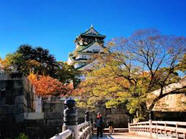
1. OSAKA CASTLE
The castle is one of Japan's most famous landmarks
and it played a major role in the unification of
Japan during the sixteenth century of the
Azuchi-Momoyama period. Within the castle, the main
tower is a centerpiece of originality and
innovation. We can learn rich history and science
behind architectural methods that were developed in
Japan during the period.

2. SMIYOSHI TAISHA
One of Japan's most renowned shrines. Encompassed by natural beauty, the shrine grounds overflow with spiritual spots offering a profound sense of history, such as the Sorihashi arched bridge (Taikobashi), sacred trees over 1,000 years old, and the main shrine hall, which is a designated national treasure.

3. SHITENNOJI
The oldest temple in Japan, founded in 593 by Prince Shotoku (572-622).The Shitennos are the four heavenly kings of Buddhism and Prince Shotoku built Shitennoji to honor them as the state sought to spread the new faith in Japan.

4. Kyoto
Kyoto is a old capital city of Japan. It is world-famous for its refined culture and charm of rural Japan. Among many other places, walking through the Philosopher's Walk, a pedestrian path that follows a cherry-tree-lined canal s a must.

5. Kobe
Kobe is Japan's third-largest port city,
and the capital city of Hyōgo Prefecture. It is
a beautiful city with scenic spots like Mount
Rokkō and the Arima Onsen.
The supercomputer Fugaku, located in Kobe, was jointly developed by RIKEN and Fujitsu since 2014,
and completed on March 9, 2021. On the same day, Fugaku
became available for shared use, providing
access for a wide range of researchers and users
in academic and industrial fields.
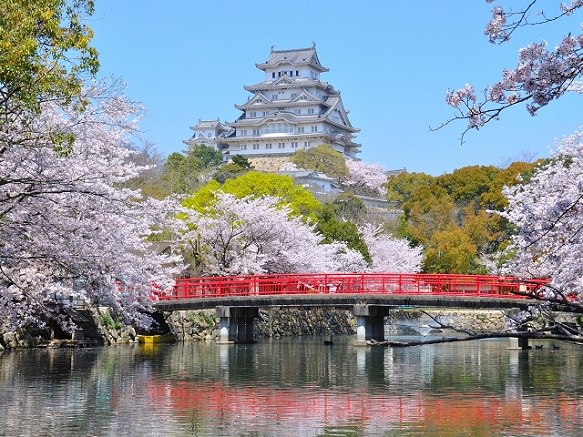
6. Himeji
Himeji Castle is the largest and most visited castle in Japan, and it was registered in 1993 as one of the first UNESCO World Heritage Sites in the country. The area within the middle moat of the castle complex is a designated Special Historic Site and five structures of the castle are also designated National Treasures.
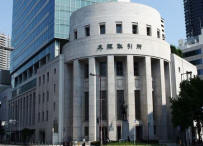
7. Kitahama
Kitahama is a business district in Osaka with a rich historical atmosphere. It is the home not only to key financial buildings such as the Osaka Securities Exchange, but also to several culturally and historically significant buildings and parks.
8. Nara
Nara is another old capital city near Osaka. Several landmarks and museums, including Todaiji Temple's Great Buddha Hall that houses the world's largest bronze statue of the Buddha Vairocana. The temple is a UNESCO World Heritage Site as one of the "Historic Monuments of Ancient Nara", together with seven other sites including temples, shrines in the city of Nara.

9. Kofun
Nintoku-tenno-ryo Kofun is the Japan's largest keyhole-shaped mounded tomb - 486m long, with the square front part 307m wide, and is called one of the world's three great tombs alongside the Great Pyramid of Giza and the Mausoleum of the First Qin Emperor.
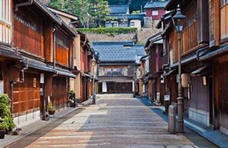
10. Kanazawa
Kanazawa is the capital of Ishikawa Prefecture. It's known for well-preserved Edo-era districts, art museums, and regional handicrafts. Among other places, Kenrokuen Garden, begun in the 17th century, is celebrated for its classic landscape designs incorporating ponds and streams.
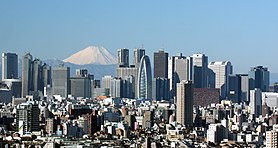
11. Tokyo
Tokyo is Japan's capital, mixes the ultramodern and the traditional, from neon-lit skyscrapers to historic temples. The opulent Meiji Shinto Shrine is known for its towering gate and surrounding woods. The Imperial Palace sits amid large public gardens.
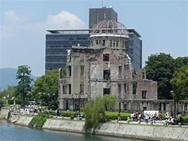
12. Hiroshima
Hiroshima was largely destroyed by an atomic bomb during World War II. Today, Hiroshima Peace Memorial Park commemorates the 1945 event. The ruins of Genbaku Dome is one of the few buildings that was left standing near ground zero.

13. Miyajima
Itsukushima Shrine, on the island of Itsukushima, is best known for its "floating" torii gate.
Go up by Miyajima Ropeway to Shishiwa observatory and hike about a mile to overlook the beautiful Setouchi Ocean!